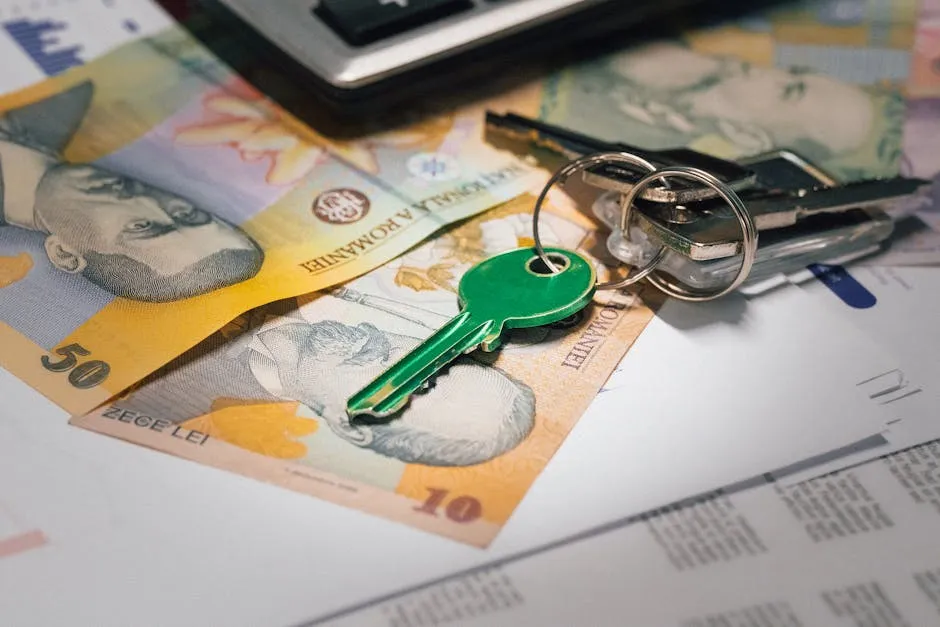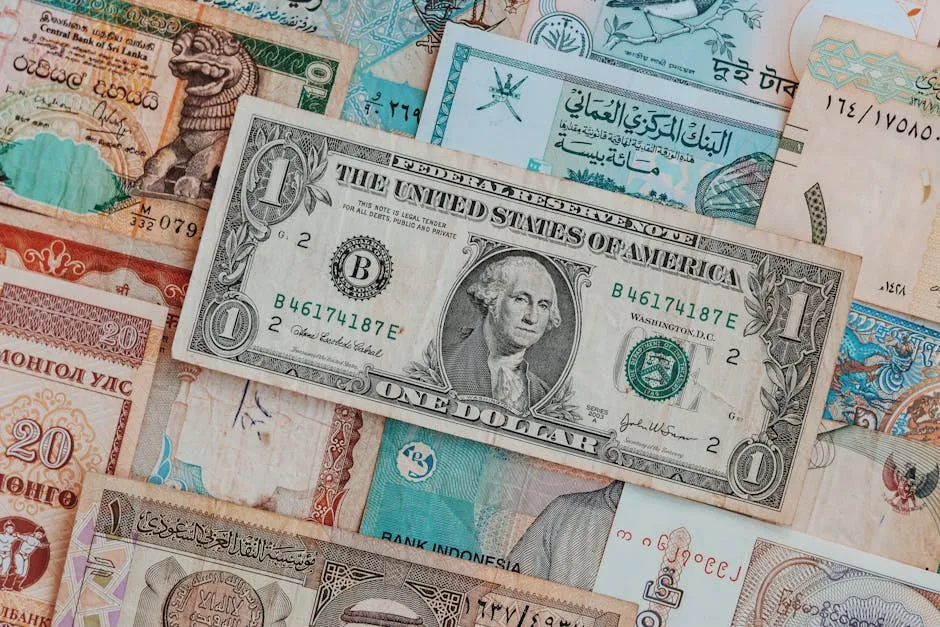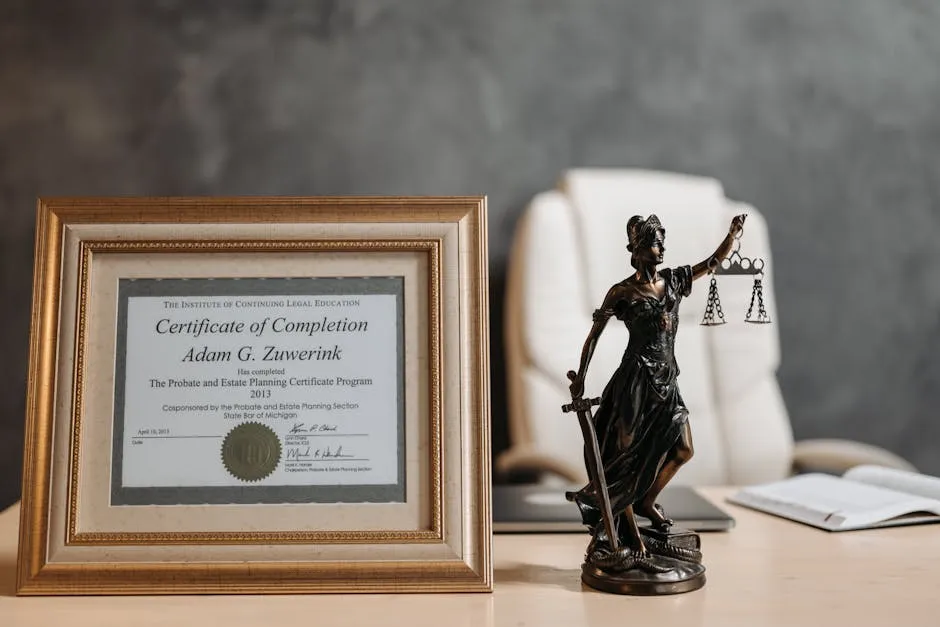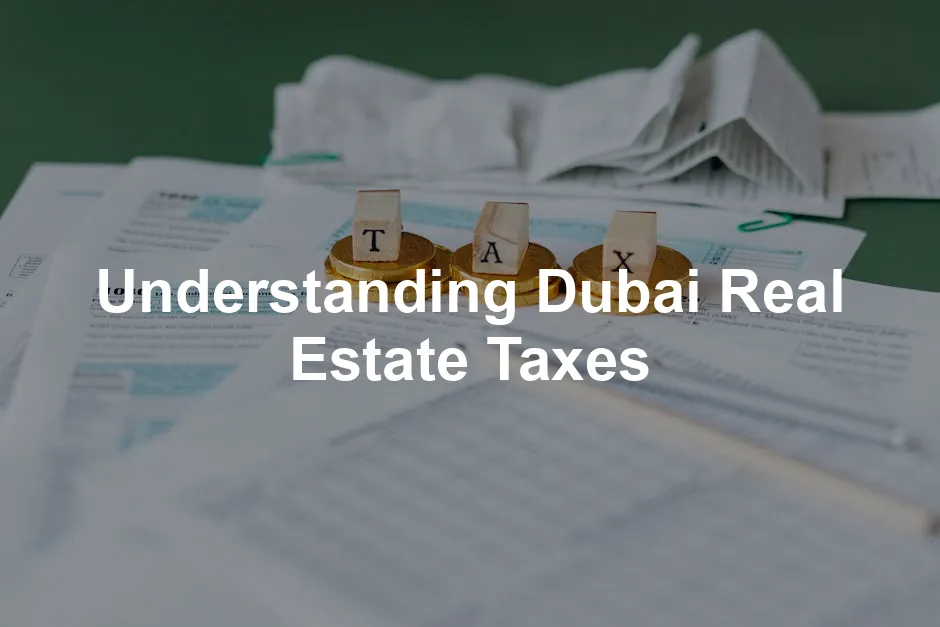Introduction
Understanding taxes in Dubai’s real estate market is crucial. A strong grasp of taxation can lead to better investment decisions. Dubai is known for its tax-friendly environment, attracting many investors and homeowners. Notably, there are no traditional property taxes here. However, it’s essential to be aware of other fees and taxes involved in property transactions.
Summary and Overview
Dubai’s unique real estate landscape appeals to investors. The absence of annual property taxes and capital gains tax makes it even more attractive. Buyers should familiarize themselves with key taxes and fees related to property purchases, such as transfer fees and municipality fees. Knowing these can significantly enhance your financial planning and investment decisions. For more details on transfer fees, check out our article on Dubai property transfer fees explained.

Understanding the structure of transfer fees is essential for any property buyer in Dubai. Dubai property transfer fees explained provides a comprehensive overview.
The Tax Environment in Dubai
1. Overview of Taxation in Dubai
Dubai boasts a tax-free status that stands out globally. Unlike many countries, the UAE does not impose personal income tax or wealth taxes. This creates a favorable environment for property investment. Investors can enjoy financial benefits, making the Dubai tax system attractive. The UAE tax benefits promote growth and attract global investors looking for lucrative opportunities.

2. Property Tax Structure
2.1 No Annual Property Tax
Dubai does not have an annual property tax. This lack of recurring tax is beneficial for homeowners and investors. It allows for better financial management and higher returns on investment. By avoiding ongoing tax payments, property owners can focus on maximizing their investment potential.
2.2 Transfer Fees
When purchasing property, buyers must pay a transfer fee. This fee is set at 4% of the property’s purchase price and is typically shared between the buyer and seller. It’s essential to factor this cost into your budget when planning a property purchase. Understanding the transfer fee can help you avoid surprises during the transaction process.

3. Additional Fees and Costs
3.1 Registration and Administrative Fees
Along with transfer fees, buyers should anticipate registration and administrative fees. These may include fees for mortgage registration and obtaining a No Objection Certificate (NOC). Being aware of these costs is vital for effective budgeting.
3.2 Service Charges
Property owners in Dubai are also responsible for annual service charges. These charges cover maintenance and management of shared areas. Costs vary based on property type and location. Understanding these fees helps you plan for ongoing expenses.

4. VAT Implications
4.1 Value Added Tax (VAT)
The UAE implemented a 5% VAT that applies to certain property transactions. While residential property sales are mostly exempt, newly constructed residential properties may incur VAT. Commercial properties, however, are subject to this tax. Being aware of VAT implications ensures you remain compliant and avoid unexpected costs.
5. Rental Income and Other Tax Considerations
5.1 Rental Income Tax
Dubai does not impose rental income tax on residential properties. This tax-free status is appealing for investors looking to generate income from rentals. It allows for higher net returns and encourages more investment in the rental market.
5.2 Capital Gains Tax
There is no capital gains tax on property sales in Dubai. This absence of taxation on profits is a significant advantage for property investors. It allows full retention of profits, making Dubai a prime location for investment.

6. Legal Considerations for Foreign Investors
6.1 Property Ownership Laws
Foreign investors should familiarize themselves with property ownership laws in Dubai. Understanding freehold versus leasehold properties is crucial for making informed decisions. This knowledge ensures compliance with local regulations and protects your investment.

6.2 Inheritance and Estate Tax Considerations
There is no inheritance tax in Dubai, simplifying the transfer of property to heirs. However, expatriates should have a legally valid will to ensure their assets are distributed according to their wishes. This legal preparation is essential for safeguarding your investments.

FAQs
Is there an annual property tax in Dubai?
No, Dubai does not impose annual property taxes on owned properties.
What is the transfer fee when buying property in Dubai?
The transfer fee is 4% of the property value, typically split between buyer and seller.
Are there any taxes on rental income in Dubai?
If you’re considering investing in rental properties, you’ll be pleased to know there’s no rental income tax in Dubai. This tax-free status applies to residential properties, making it an attractive option for investors. Imagine earning income without worrying about tax deductions! This financial freedom encourages more investments in the rental market, creating a thriving environment.
What additional costs should I expect when purchasing property in Dubai?
When buying property in Dubai, expect a few additional costs beyond the purchase price. First, there’s the transfer fee, which is 4% of the property’s value. This fee usually gets split between the buyer and seller. Additionally, registration fees will apply, typically around AED 2,000 to AED 4,000 based on the property’s price. Service charges are another ongoing cost, covering maintenance and management of shared facilities. They can vary significantly depending on the property type and location. If you’re financing your purchase with a mortgage, plan for mortgage registration fees, which can add to your expenses. Understanding these costs helps you budget effectively for your investment.
How does VAT apply to property transactions in Dubai?
In Dubai, VAT generally does not apply to residential property transactions. However, if you’re buying commercial property, a 5% VAT does come into play. Newly constructed residential properties may incur VAT within the first three years of sale. Knowing how VAT affects your purchase can help you plan your budget accordingly. Always seek professional advice to ensure you understand how VAT may impact your investment.
What legal considerations should foreign investors be aware of?
Foreign investors must navigate specific legal considerations when investing in Dubai real estate. First, it’s essential to understand property ownership laws, especially the differences between freehold and leasehold properties. Freehold properties grant full ownership, while leasehold properties have time limitations. Another significant aspect is the importance of having a will. This legal document ensures your assets are distributed according to your wishes in case of inheritance. Without a will, local laws may dictate how your property is handled, which could lead to unwanted outcomes.
Is there a capital gains tax on property sales in Dubai?
No, there is no capital gains tax on property sales in Dubai. This absence of taxation allows investors to keep all their profits when selling a property. For those looking to capitalize on property appreciation, this feature is a significant advantage. It enhances the overall profitability of investments in Dubai’s dynamic real estate market, making it a prime choice for property investors.
Please let us know what you think about our content by leaving a comment down below!
Thank you for reading till here 🙂
All images from Pexels

